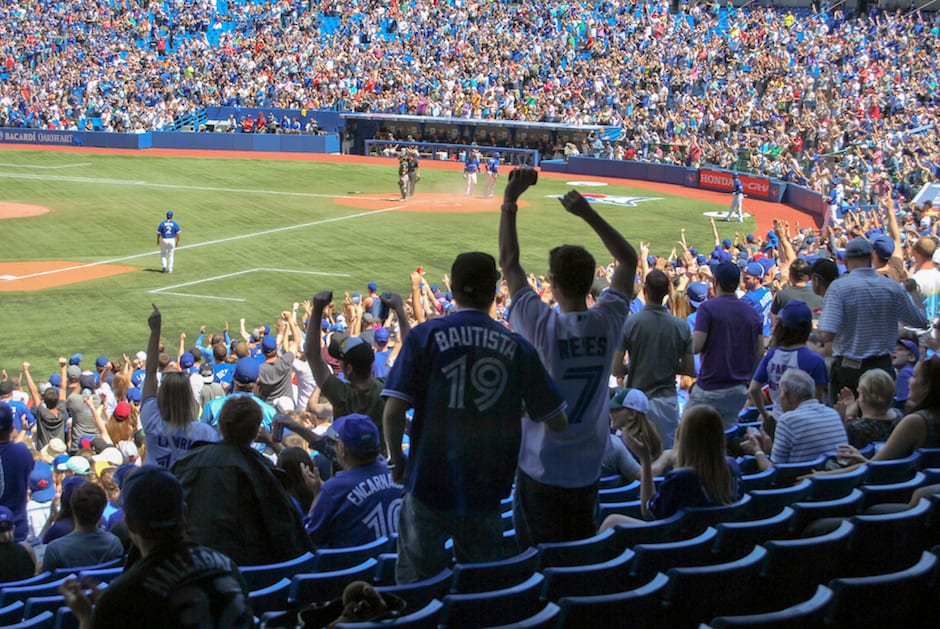There are numerous ways to define Toronto: its breadth of diversity, the hospitality of its residents, or the quality of its leadership all come to mind. Last summer the city was defined by the mayoral election. This year will be marked as the year of sport for Toronto, thanks not only to the Pan American Games, but the success of the Toronto Blue Jays.
2015 marked the most successful Jays season the city saw in the past 22 years. If you walked anywhere in the downtown core over the past two months you would have seen hundreds of Jays hats-and-jersey-adorned fans littering the streets.
[pullquote]2015 marked the most successful Jays season the city saw in the past 22 years.[/pullquote]
Not only did the sale of various Jays merchandise skyrocket over the length of the team’s playoff stint, but so did collective pride and excitement about the team — a breakthrough Toronto based sports desperately needed. “[The success of the Jays] brings together people of different walks of life, social locations, and ages to share the experience of cheering on a winning team” said urban studies lecturer David Roberts in an interview with U of T News.
The success of the Jays couldn’t have come at a better time. University aged students alone have seen several Leafs and Raptors teams spiral into the abyss of NHL and NBA standings. We’ve lost playoff spots by one point on more than one occasion, and so desperately needed this ego boost to finally get over the memory of the 5-1 lead loss the Leafs had in the infamous game seven match against Boston in 2013.
The city reveled in the tenacity and expertise of Josh Donaldson, David Price, and Jose Bautista, who to many, are now considered civic heroes. Aside from the fact that the Jays roster was the best we’ve seen in decades, athletes, management, and the media continued to hype the success of the team until the bitter end. Now the only question left is sustainability.
Roberts admits that the civic pride and excitement the Jays created over the past few months in Toronto will be difficult to sustain after the team’s elimination from the ALCS on Friday, but there is still hope. “Part of the challenge of creating a greater impact is to figure out how to extend the feelings about the Blue Jays to the city of Toronto… [which will] likely takes some visionary civic leadership,” he said.
The Jays success may also translate into a newfound appreciation for university sport as well. The Varsity Blues men’s baseball and women’s fastpitch teams — both coming off third place finish’s in the OUA and OIWFA championships, respectively, this season, may be able to harness some of Toronto’s new found love of the game.


